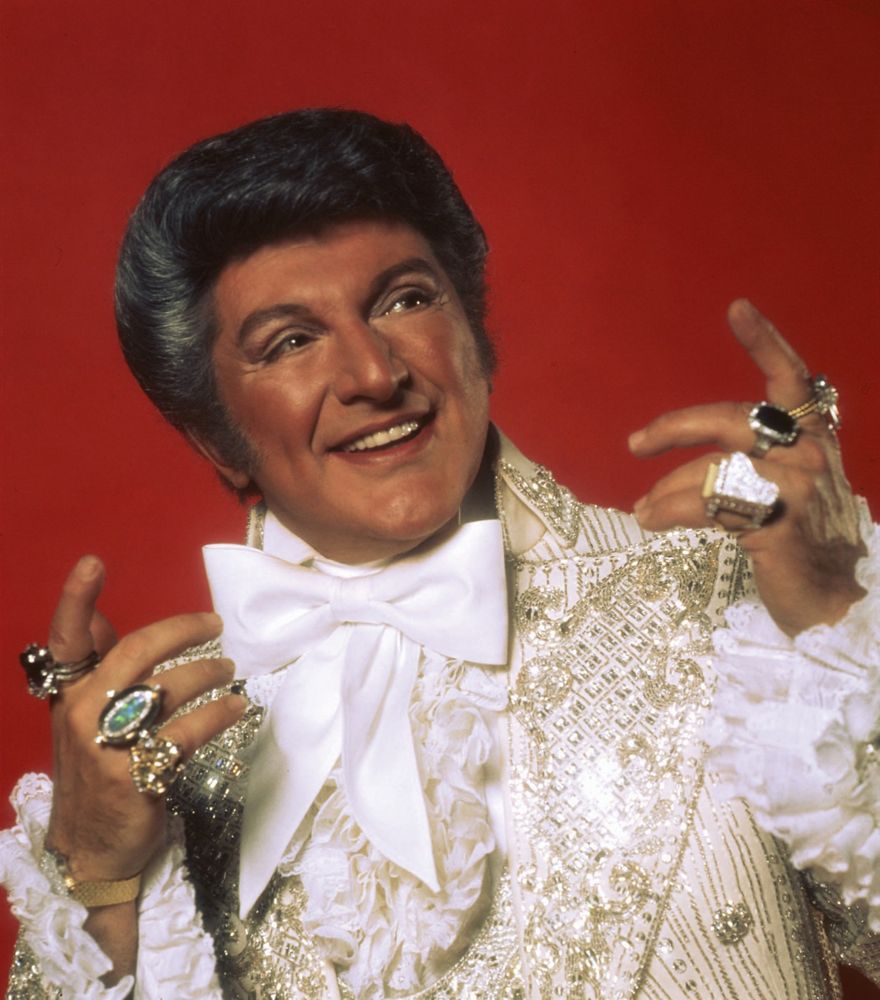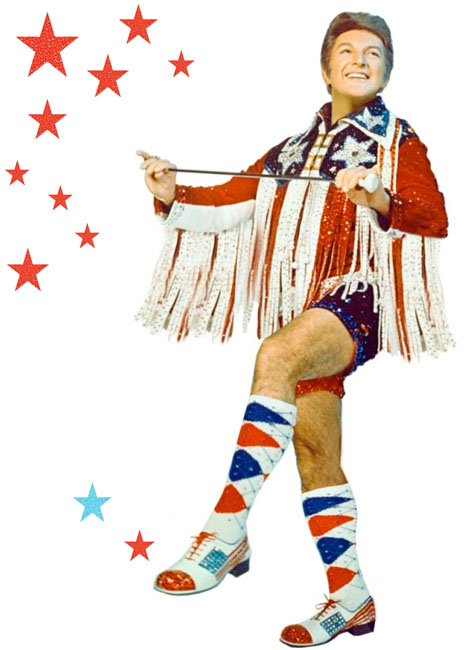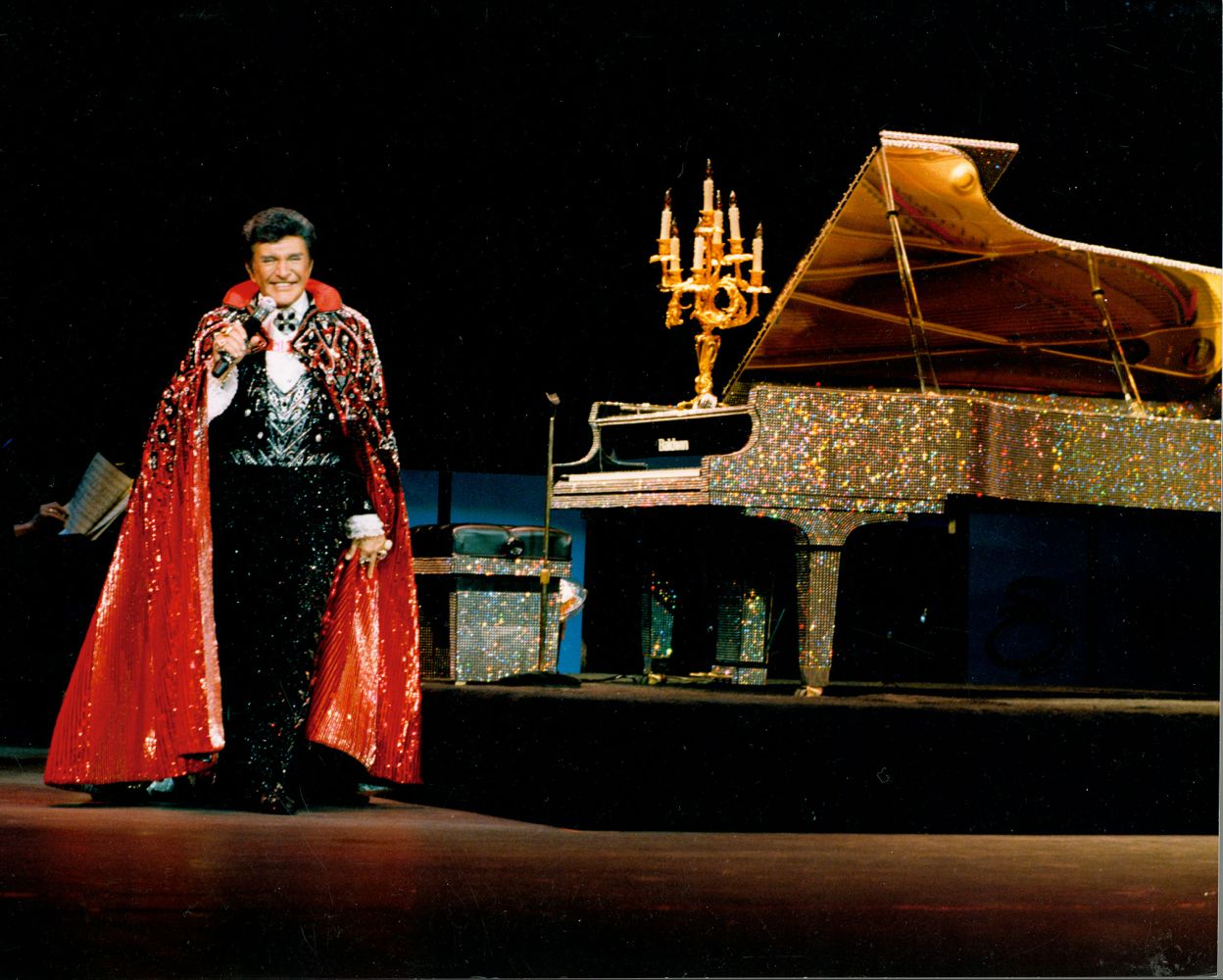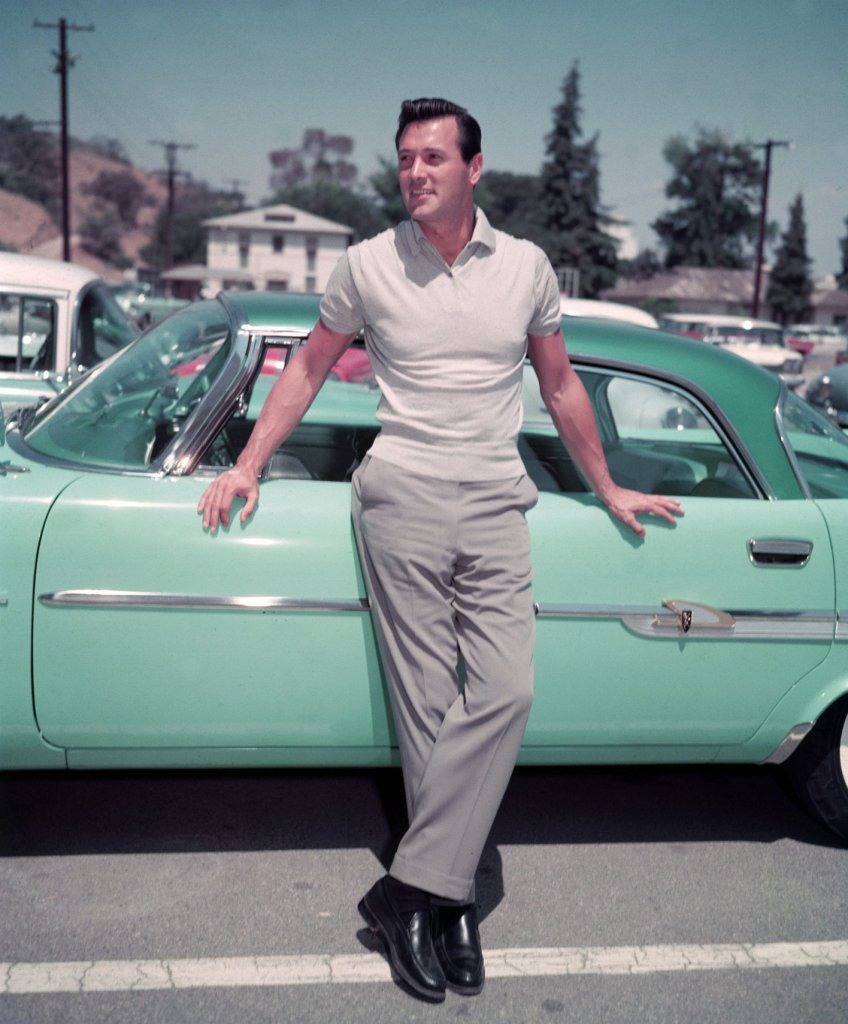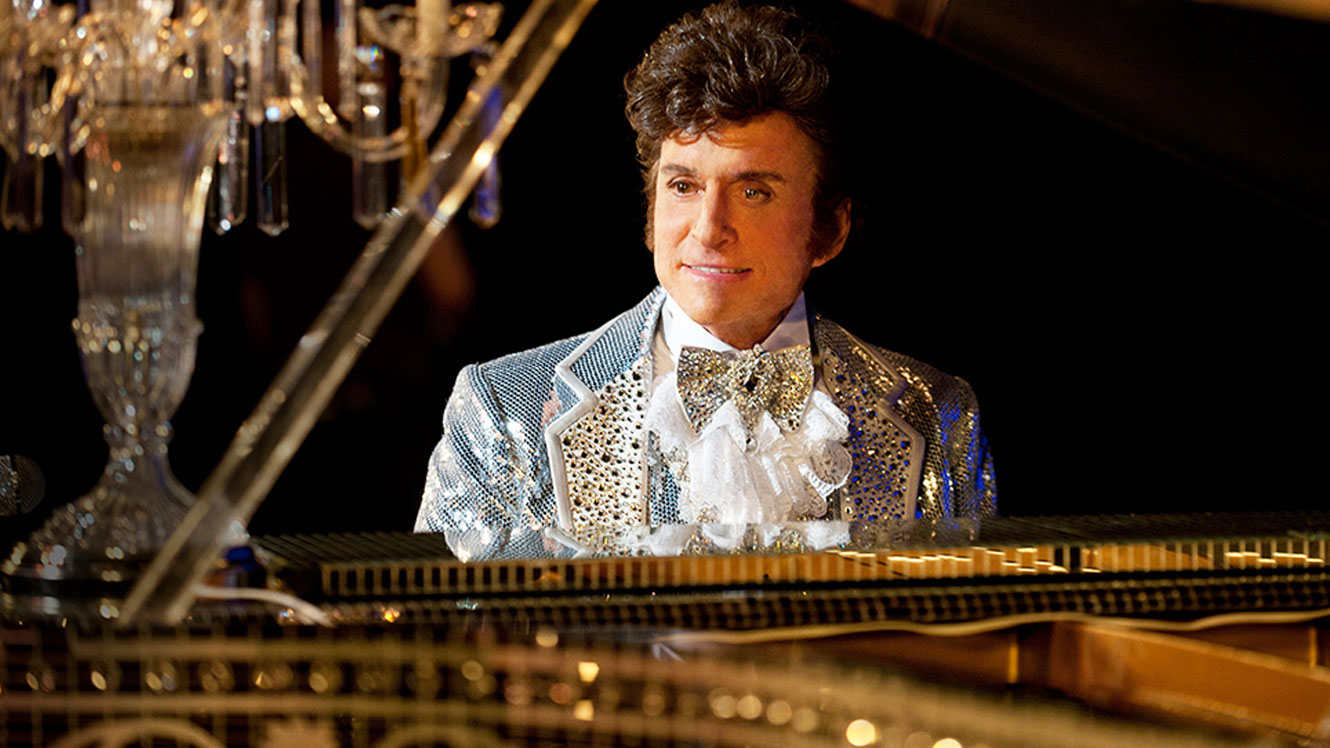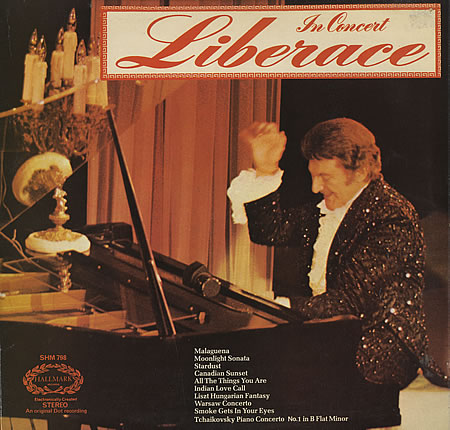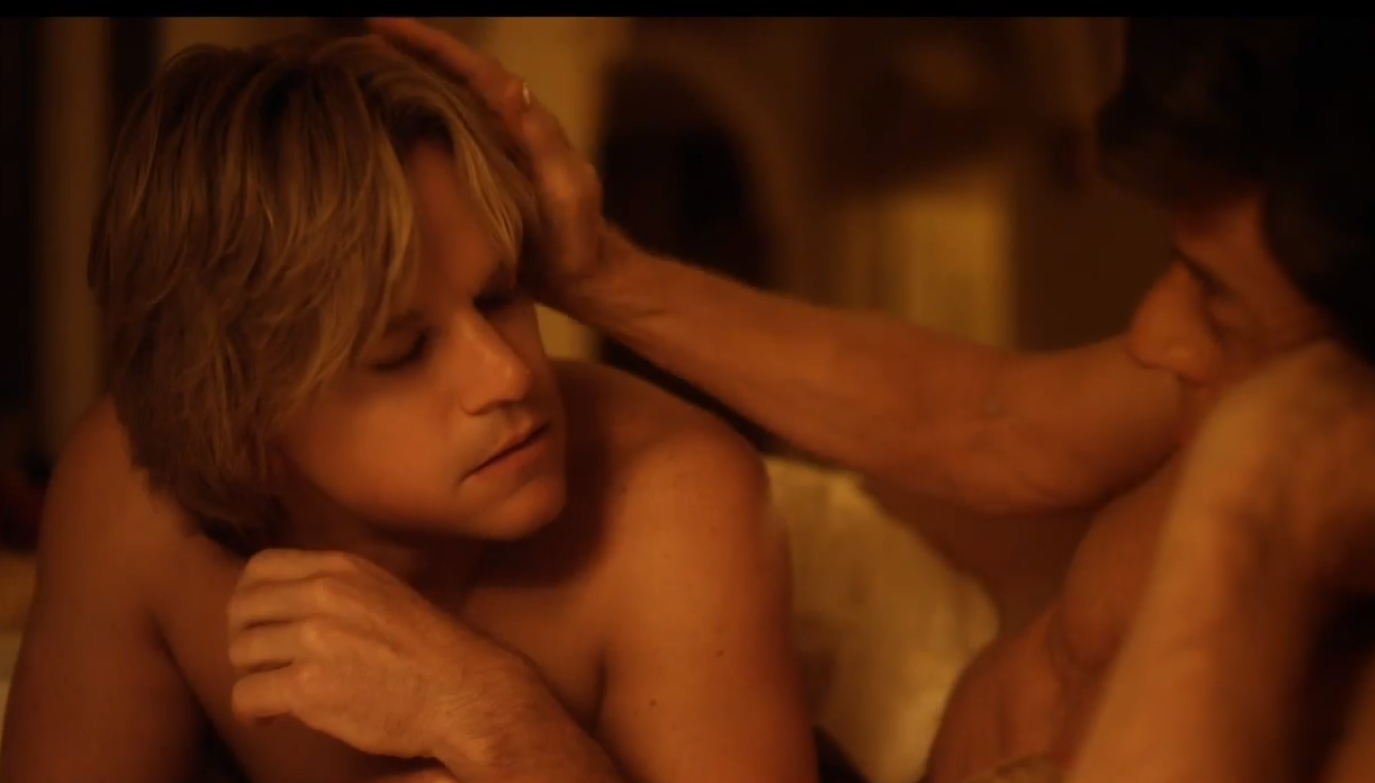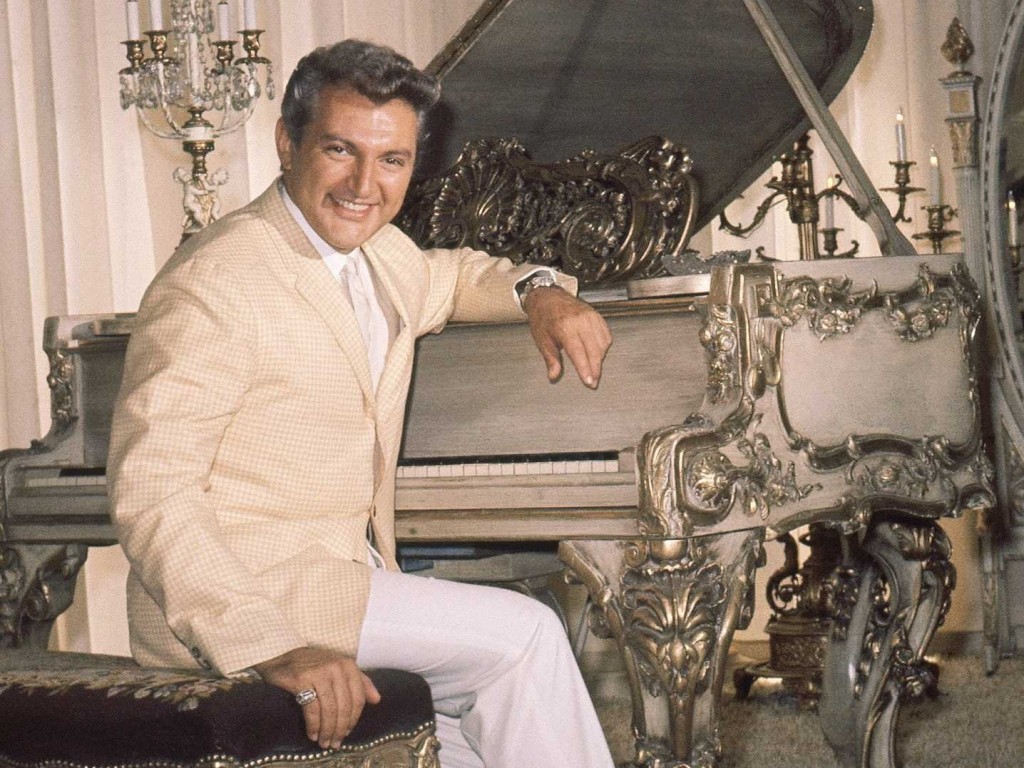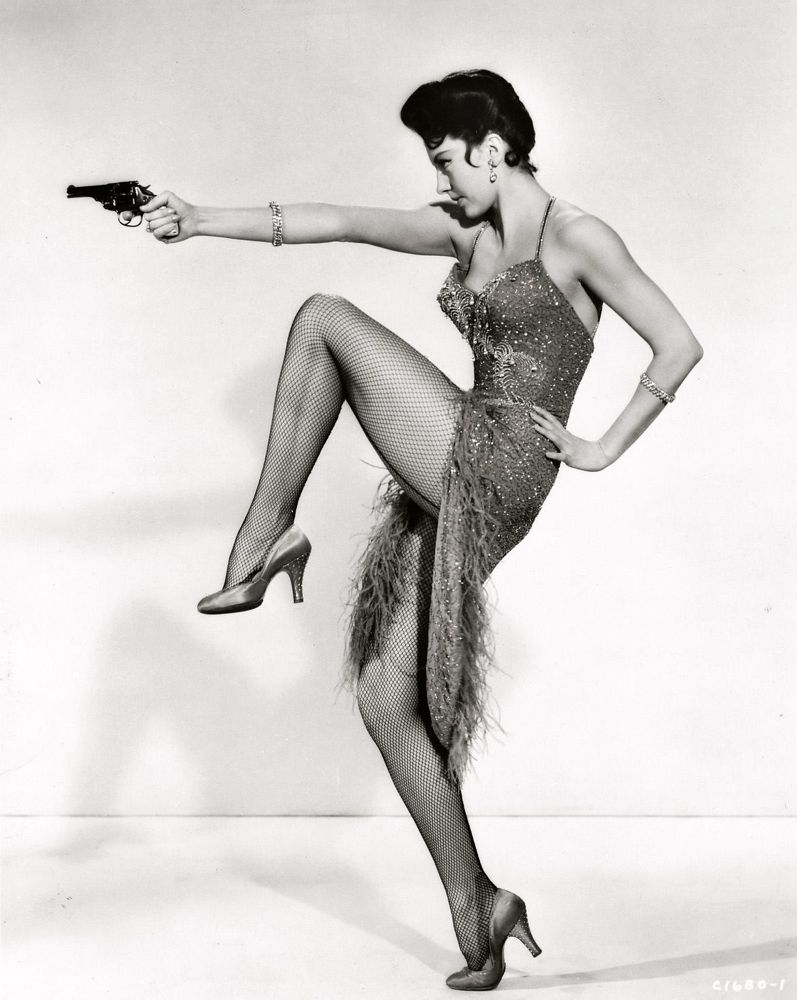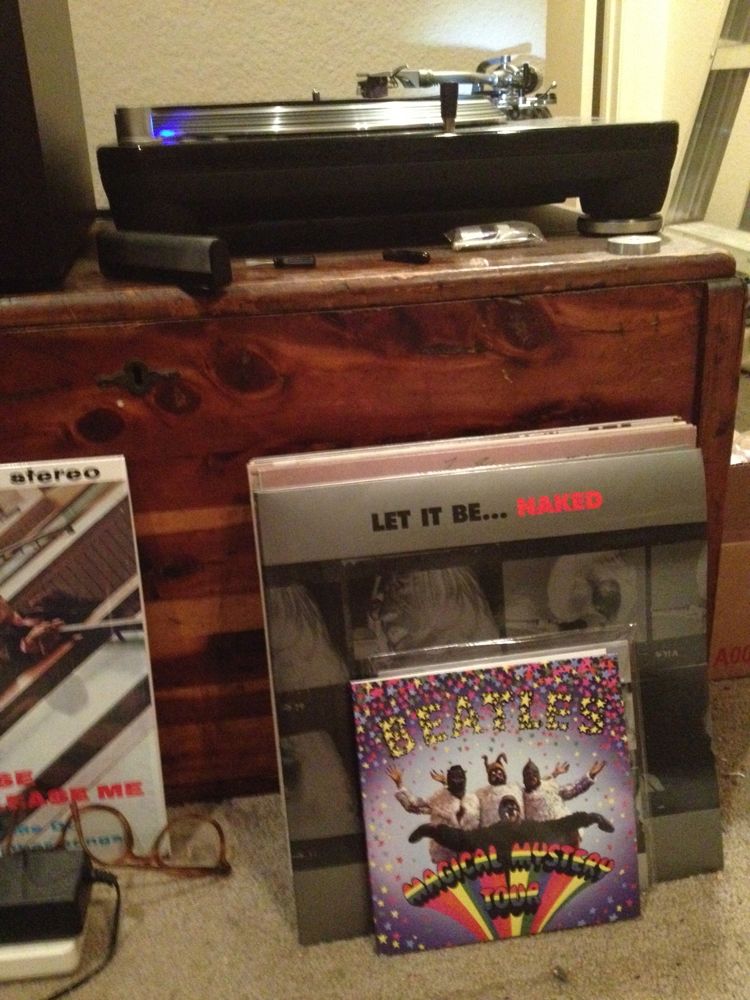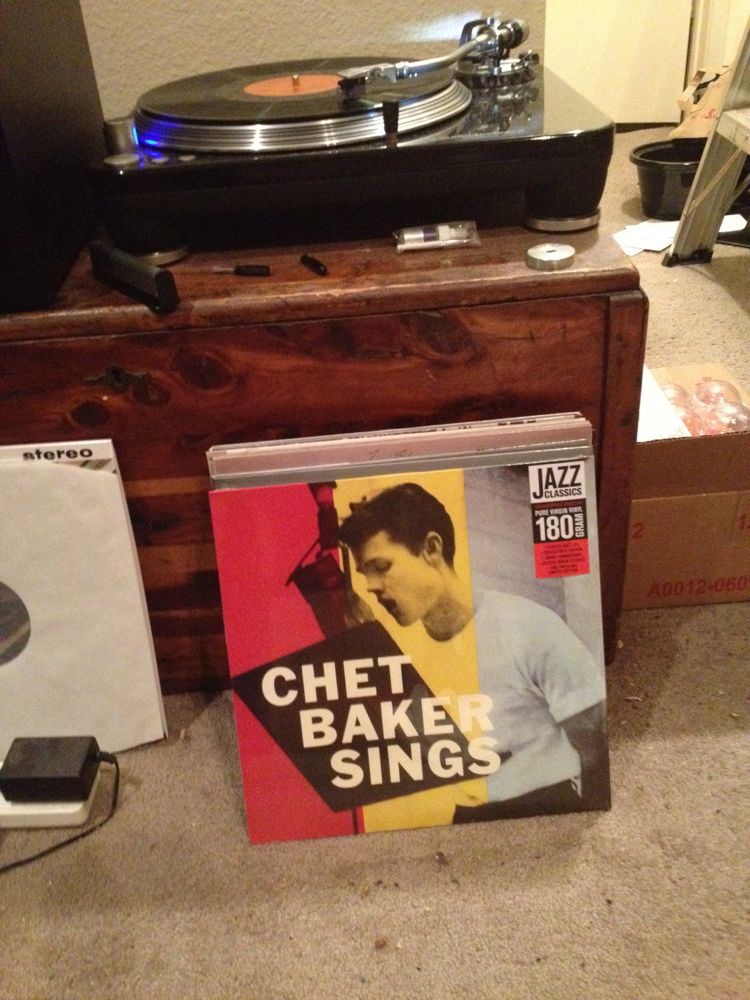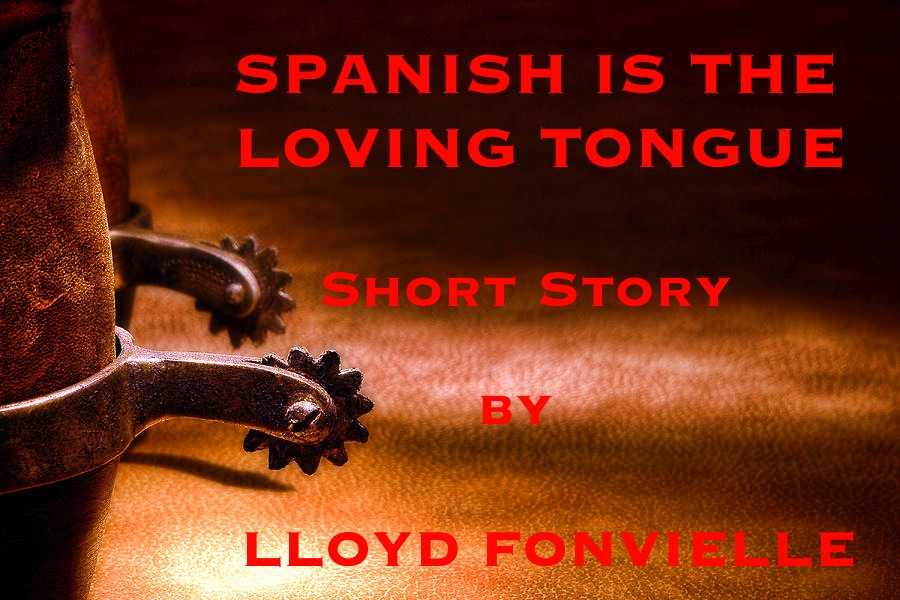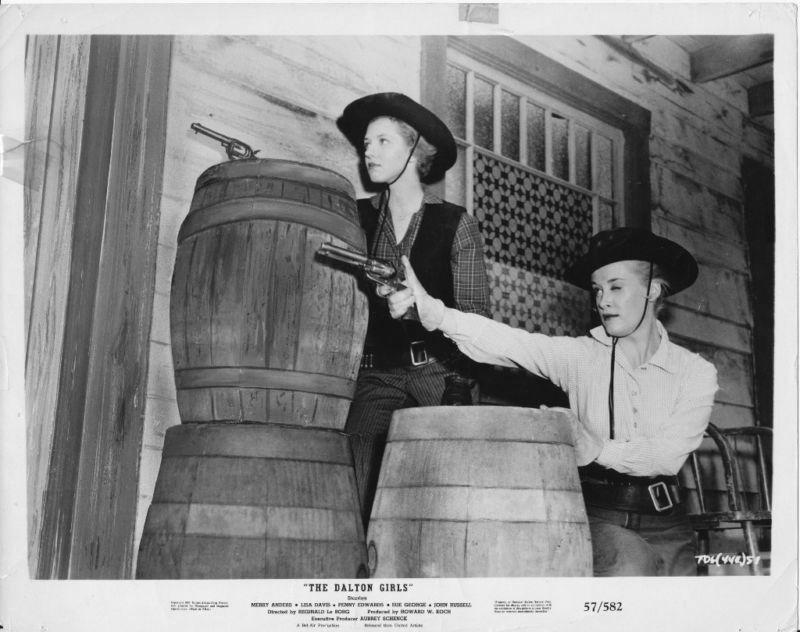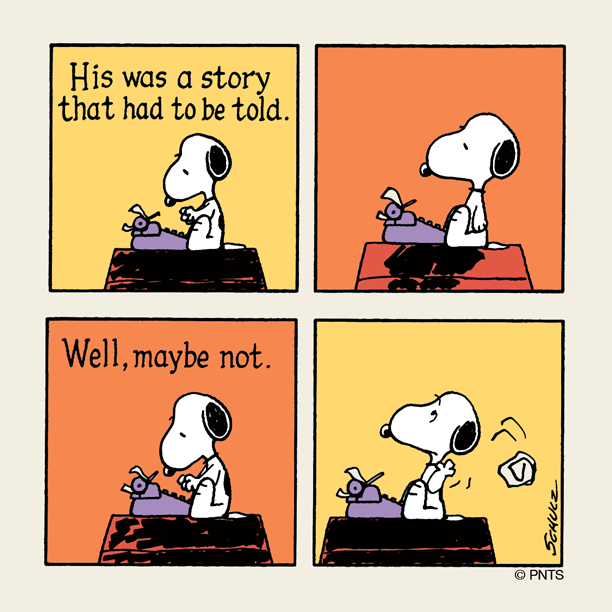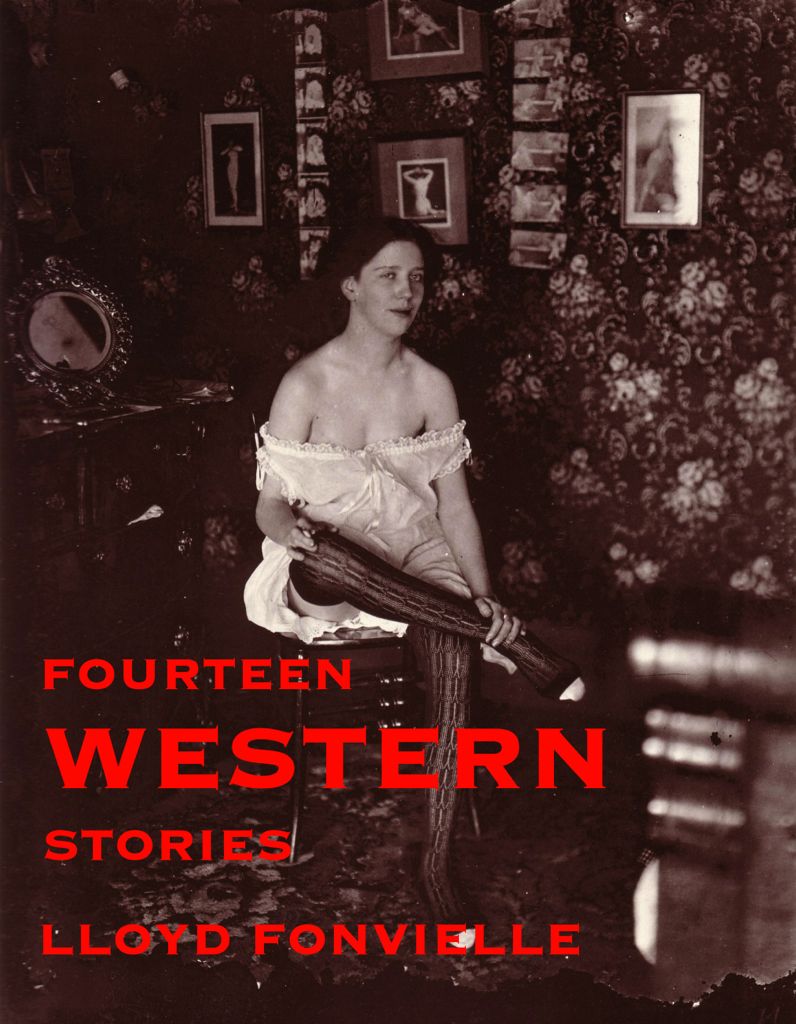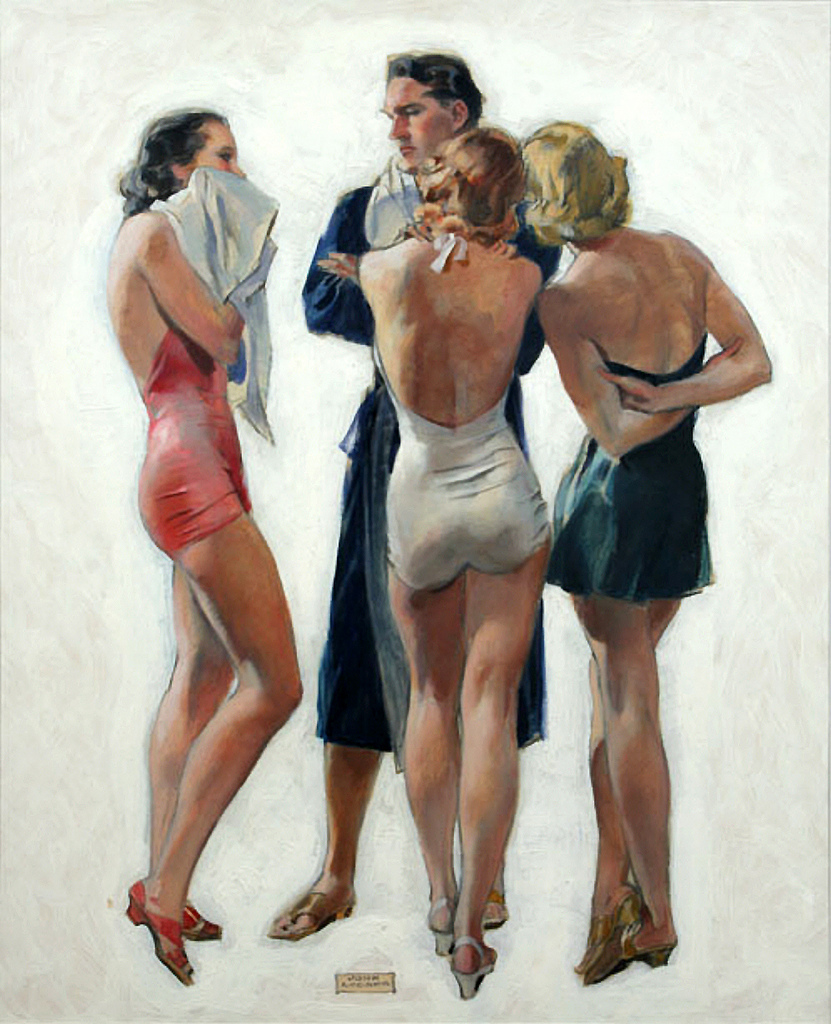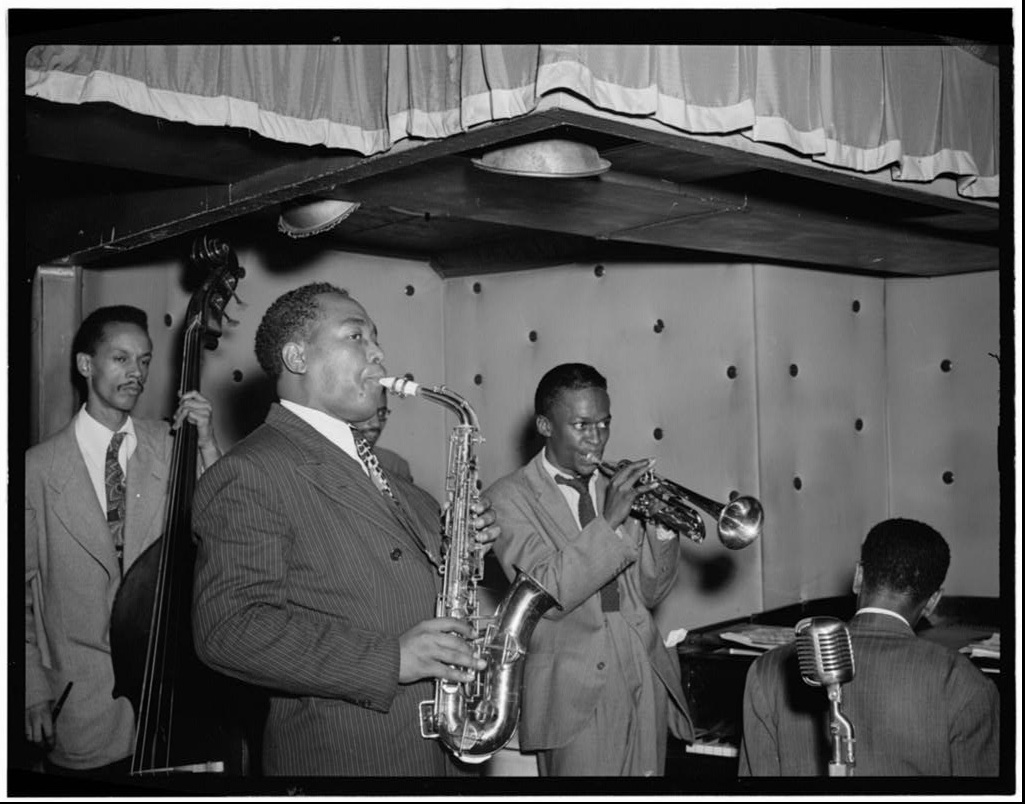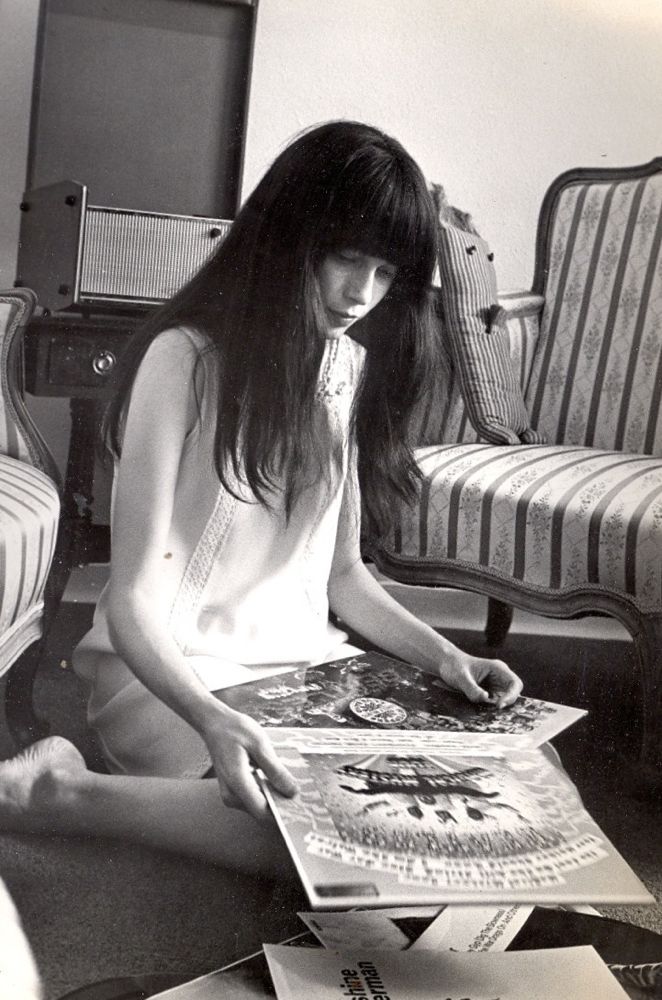Liberace was one of the most important cultural figures in American history. In a time of vicious and legally enforced homophobia, Liberace stood up in front of America and said, in every way but words, “I’m gay, I love being gay — isn’t being gay wonderful?” And America, in its curious, genial voice of denial said, “Yes — being gay is wonderful!”
This is less odd than it seems. I would venture that almost every family in America in the 1950s had a gay member somewhere in the flock, or a gay friend of the family — the effeminate uncle or cousin who never married because he “never found the right girl”, the two spinster librarians who lived together their whole lives as domestic partners because they “never found the right guy”.
One could deal with such people by denying, as they denied, who they really were, but the situation created tension all the same. What a relief it would have been to be able to say, “Yes, Uncle Ted is queer as a three-dollar bill, but he’s a good old boy, all the same.”
Liberace was everybody’s queer Uncle Ted — he allowed us to love and celebrate Uncle Ted’s queerness by proxy. Indeed, Liberace’s effeminacy made Uncle Ted look almost macho — as macho as a Hollywood leading man.
Steven Soderbergh’s biopic Beyond the Candelabra doesn’t begin to scratch the surface of how important and anomalous Liberace was. The real Liberace was way more effeminate in style than Michael Douglas’s impersonation suggests. He was so effeminate that he could seriously unsettle straight men — yet so charming and unapologetic about his persona that the most uptight of straight men could still find a way to love him.
At the same time, the real Liberace had balls, in his furious presentation of a gay persona that might well have gotten him lynched, and certainly run out of show business, if that persona had ever turned sour in the public mind. Douglas’s Liberace doesn’t convey the steely self-confidence, the irrational courage — or perhaps just the sheer reckless madness — of the real Liberace.
By concentrating on his later years, Soderbergh can’t really convey just how big Liberace was, once upon a time. Until the advent of Elvis Presley, Liberace was the most successful performer in America when it came to filling large arenas. He was an entertainment phenomenon, a genuine superstar.
Soderbergh reduces Liberace’s story to a melodrama about an aging queen who finds and loses something like true love, amidst a life of gaudy consumption that doesn’t nourish the soul. Yawn. Douglas and Matt Damon give fine performances in the film, and its heart is the right place — but it misses what was really interesting about Liberace.
What you will not find in Beyond the Candelabra is the man who had a great intuition and bet his life on it — the intuition that America was tired of denying its homosexual uncles and aunts and cousins, looking for a way to just stop worrying about homos.
The switch in attitudes in this country about same-sex marriage has come with astonishing speed — it’s as though we had just been looking for an opportunity not to worry about it anymore. Liberace, in his way, offered that same sort of relief from worry. “Do I seem like a nice person?” he asked. “Do I have a little talent as a piano player? Do my vulgar outfits make you gasp and laugh? Then relax — don’t worry about who I’m going to be fucking tonight. It’s not important and it’s none of of your business anyway.”

